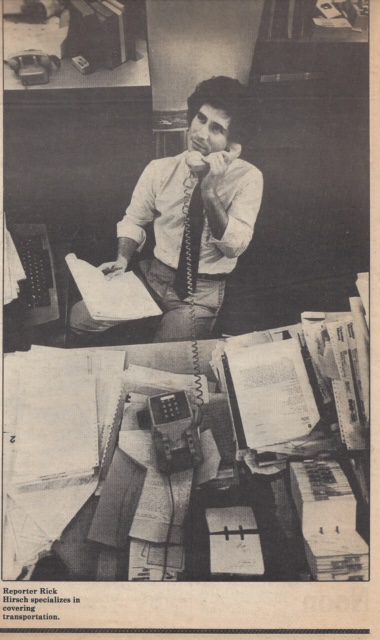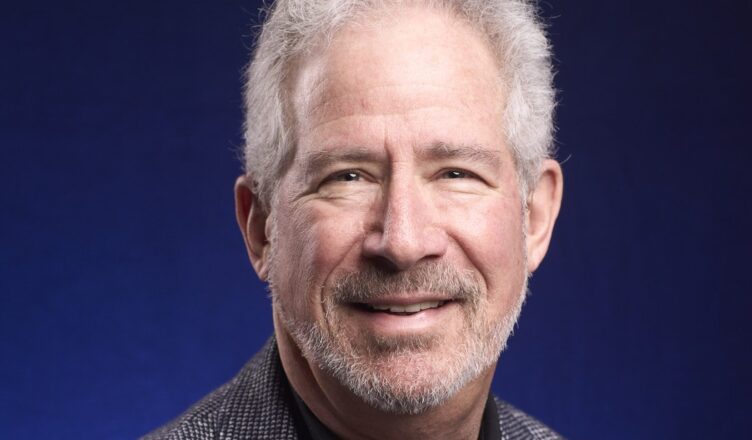Not many people know what they want to do for a living when they are in their early teens, but 67-year-old journalist and recently appointed director of the Collier Prize, Rick Hirsch did.
“When I was entering junior high and going into high school, the Watergate scandal happened. As a result of work done by journalists, the president of the United States resigned in disgrace. I thought, ‘those guys are heroes, I want to be like them’,” recalled Hirsch.
His childhood fascination with the profession led him to join his school’s paper in junior high school, which continued into high school and, eventually, to studying journalism at the University of Florida.
The Collier Prize for State Government Accountability at the University of Florida is designed to encourage coverage of state government in every state, focusing on investigative and political reporting.
The $25,000 prize is one of the largest journalism awards in the nation and the largest focused on state government. The distinction is open to all news organizations and platforms and is announced annually at the White House Correspondents’ Association dinner.
The Collier Prize was founded by Nathan S. Collier, founder and chairman of The Collier Companies headquartered in Gainesville to promote coverage of state government. The honor’s namesake is a descendant of Peter Fenelon Collier, who founded the investigative journalism magazine, Collier’s in the 1800s. Among its featured writers, Jack London, Ida Tarbell and Upton Sinclair.
Rick Hirsch hopes to elevate The Collier Prize’s profile and generate more awareness of it, a symposium about government accountability reporting.
Hirsch said such work ”is in my DNA. It is the work I’ve done my whole career as an editor and reporter. I think in many ways it is the most important thing we do, so I am very aligned with the mission.”
Hirsch’s dedication to news investigating the work of the government is known to those who have worked with him, including Hub Brown, the dean of the University of Florida College of Journalism and Communications.
“Rick has meant so much in journalism, not just in South Florida, but across the country,” Brown said, explaining that Hirsch understood the purpose of the Collier Prize. “This is going to be a chance for us to turn to the country and say, “We are willing to shine a spotlight on the best work in the country”. We want to strengthen journalism in America long-term, and so does Rick.”
Aside from his own work, Hirsch has enjoyed passing his knowledge onto others, by organizing and creating various training workshops.
Hirsch is the rare journalist who spent the bulk of his career at one publication, logging 42 years at the Miami Herald. He started as a reporter and eventually rose to the role of managing editor, a job he held for 12 years.
During his tenure at the renowned paper, Hirsch covered a variety of stories that impacted the community, including investigative reporting on the shoddy construction of Metro rails, which led to the county delaying its opening to fix what was not done right. He also led the Miami Herald’s Pulitzer Prize winning coverage on the Surfside collapse and Yahweh ben Yahweh.

Although Hirsch has had a prolific career in news, there was a time during his college years where he considered going in a different direction.
“I went through a period of time where I thought maybe I’d want to be a lawyer,” he said. “When I told my journalism professor, whose husband was a chief judge, that I was going to take the LSAT, she said, ‘oh great, just what we need, one more mediocre lawyer. Why don’t you do something you can be good at?”
It took Hirsch five years to earn his bachelor’s degree because he did so many internships with publications including the Palm Beach Post, Miami Herald and working for a congressman in their media office.
Hirsch admitted he’s never had a moment in his career where he felt like he’s “made it”, but takes great pride in the fact that he’s helped build other people’s careers.
“What I am most proud of is the people I’ve hired and the careers I’ve played a role in,” said Hirsch who has been hiring people since he was a city editor for the local desk in Broward.
Hirsch went on to share a heartwarming moment while at the Pulitzer Prize ceremony at Columbia University when the Miami Herald was awarded for their coverage on the surfside building collapse. The person who won the Pulitzer Prize for nonfiction is a woman named Andrea Elliot whom Hirsch hired for her first job. Elliot introduced Hirsch to her elderly mother at the event as the person who gave her her start.
“It’s really impossible for me to describe how gratifying that is,” said Hirsch who after leaving his position as managing editor, worked as a recruiter for the paper’s parent company for a couple of years.
Hirsch’s attention to detail and practical use of real-world experience was noticed during his time lecturing at Florida International University.
“He wasn’t just good at teaching the language and style of journalism, but how to get a job,” said Chuck Strouse, a fellow seasoned journalist who has known Hirsch for over thirty years and has worked with him both at the Miami Herald and FIU.
“Rich is a very smart guy,” said Strouse. “Very intuitive editor who has a great sense of local government. “He was the Urban Affairs editor when I covered county government. He had done exactly the same job before; and knew county government up and down.”
Strouse went on to describe some of the contributions Hirsch made while at the Miami Herald, such as steering the paper’s coverage of Hurricane Andrew, a matter especially sensitive to him because he lost his home in the natural disaster.
“He was at the paper, editing copy even after his family and neighbors were trying to put back lives that were destroyed during the storm,” recalled Strouse.
The Miami Herald won the Gold Medal for Public Service, the biggest Pulitzer Prize for their coverage on the natural disaster.
David Lawrence Jr, former publisher of the Miami Herald and chair of the Children’s Movement of Florida.[1] is impressed with the work Hirsch has done both during and after his time at the renowned newspaper.
“I think everyone out to have multiple chapters in life and work as I’ve had myself,” said Lawrence. “Rick is the sort of person that whatever he tackles, he will make a difference.”
When talking about the roles he has held since retiring from the Miami Herald, Hirsch said he appreciates the flexibility that has come with them.
“If I have to take my granddaughter to gymnastics on Mondays and Wednesdays at 3, I can block off that time,” said Hirsh. “My wife and I have done some travel that I don’t think we would have done before.”
Whether Hirsch is contributing to the world of journalism or spending time with his family, he will undoubtedly continue being the remarkable person he has proven himself to be over the years.


